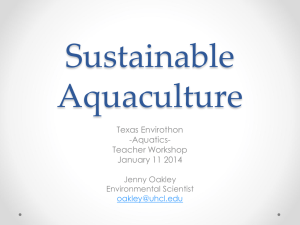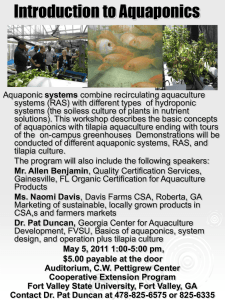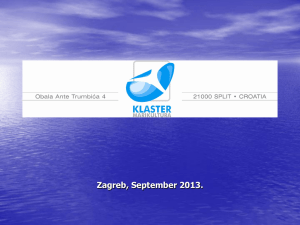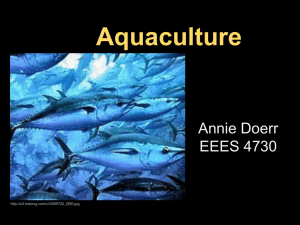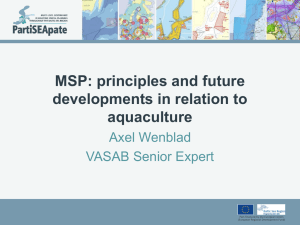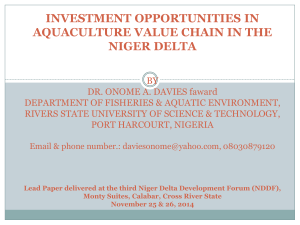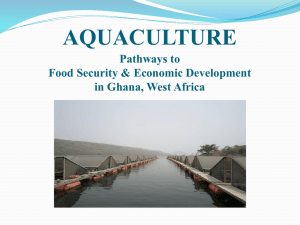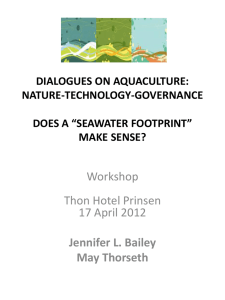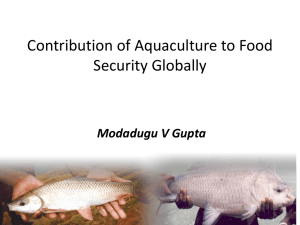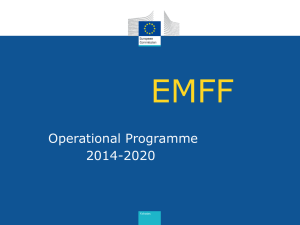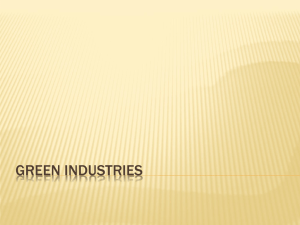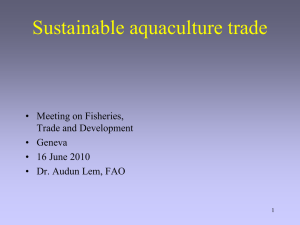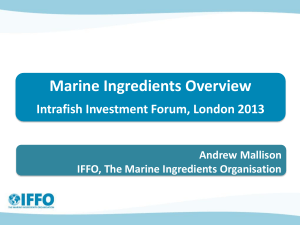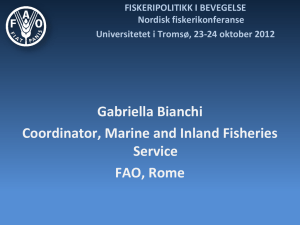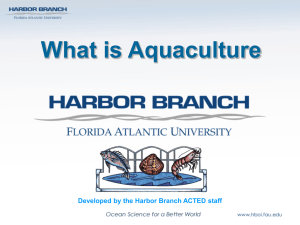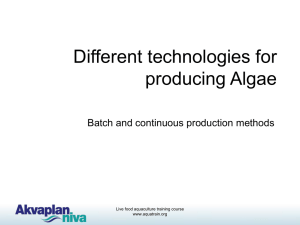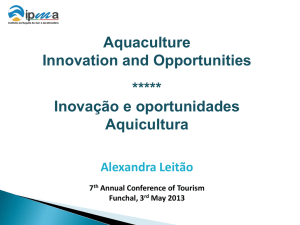Aquaculture Powerpoint
advertisement
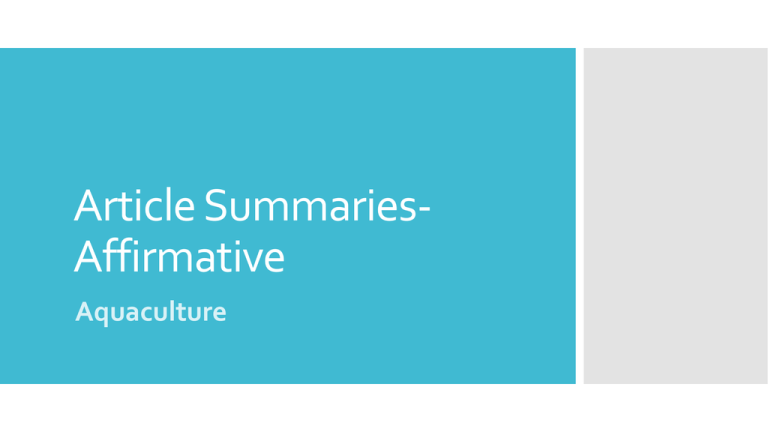
Article SummariesAffirmative Aquaculture Defining Terms Aquaculture Aquaculture works similarly to livestock farming on land: fish farms are built in limited space, and every aspect of the fishs' lives is managed by the farm operator. Aquaculture is often considered to be a solution to overfishing because farm operators have a strong incentive to ensure that fish populations remain stable. Defining Terms Agriculture Farming for crops or livestock on land. Uses irrigation (water systems), pesticides, breaking up the soil, and large amount of food resources. Defining Terms NOAA The National Ocean and Atmospheric Administration is the main federal government agency that regulates the oceans and the Earth's atmosphere. Most people that support aquaculture argue that NOAA should be the agency in charge of regulation. Defining Terms Sustainability Almost all human activities influence the environment, and one important question is whether this influence is sustainable or unstainable. Sustainable practices can be continued for a long time, while unsustainable practices will run into barriers that force them to stop. Example: Oil - Unsustainable V.S Wind - Sustainable Overfishing Article 1 Overfishing has depleted fish populations around the world, threatening food security for billions of people. Aquaculture can prevent overfishing. Aquaculture and Food Security This increases available fish for food insecure countries without overfishing. Article 2 Well-regulated aquaculture is more environmentally sustainable and resource efficient than either land agriculture or fisheries. A lot of current aquaculture, however, is based in countries with poor environmental regulation. Article 3 40% of the Earth's land is currently used for agriculture, but most agriculture is extremely resource-intensive and inefficient. Aquaculture is a more sustainable alternative. Agriculture Impacts Article 4 https://www.youtube.com/ watch?v=z0J2VELZ4RU 3 billion people are dependent on fish for 20% of their protein, fish are the primary source of protein for another 500 million people. Preventing overfishing is necessary to ensure food security. Article 5 The world's poorest two billion people spend 50-70% of their income on food and are strongly impacted by increases in food prices. Article 5 continued... Without increasing food production, food prices will rise, risking famines and wars around the world Environmental destruction Resource depletion War Famine Rising Food prices Cause Article 6 Aquaculture is increasing around the world, but so far the U.S hasn't followed this trend. Federal government regulation through NOAA would encourage U.S aquaculture development and lead to economic benefits. https://www.youtube.com/ watch?v=3Oi9GARr-Xc Without the Affirmative (The Status Quo) Article 7 permits are issued by many different agencies, this: causes confusion discourages private companies from investing in aquaculture With the Affirmative (The Future) Issuing permits under a single federal agency (NOAA) would promote aquaculture development. Article 8 Federal regulation would encourage aquaculture to be developed in a environmentally sustainable way, and overrules state regulation that harms the environment. Article Summaries Negative Fisheries Article 1 Fisheries are currently becoming more sustainable due to federal and state regulation. Many fish populations that has been at risk fifteen years ago have now been completely rebuilt. Article 2 Aquaculture fails to increase food security because the most popular fish products are luxury foods intended for consumers in rich countries. Additionally, large aquaculture operations hurt small fisherman by increasing the supply of fish and pushing down their market price. Article 3 Aquaculture increases overfishing because the most common farmed fish eat other fish. As a result, overfishing occurs in other parts of the world in order to support aquaculture. Negative effects of Aquaculture Article 4 increased waste fish escapes increased risk of diseases use of antibiotics Waste Diagram Article 5 Many farmed fish are fed with soy that's grown on land. Soy farming has a number of negative effects, including deforestation, pollution of oceans, and displacement of indigenous people in South America. Article 6 Many countries, including the U.S, are currently working to reduce overfishing and preserve ocean ecosystems by designating parts of the ocean as marine protected areas. Article 7 Food insecurity in caused by poor food distribution, not lack of food production. More than enough food is produced to feed the world's population, but a lot of that food is wasted, and many people don't have the money to afford it. Article 8 Ocean ecosystems are important for several reasons: • food • medicines • coastal protection • climate change effects regulation
